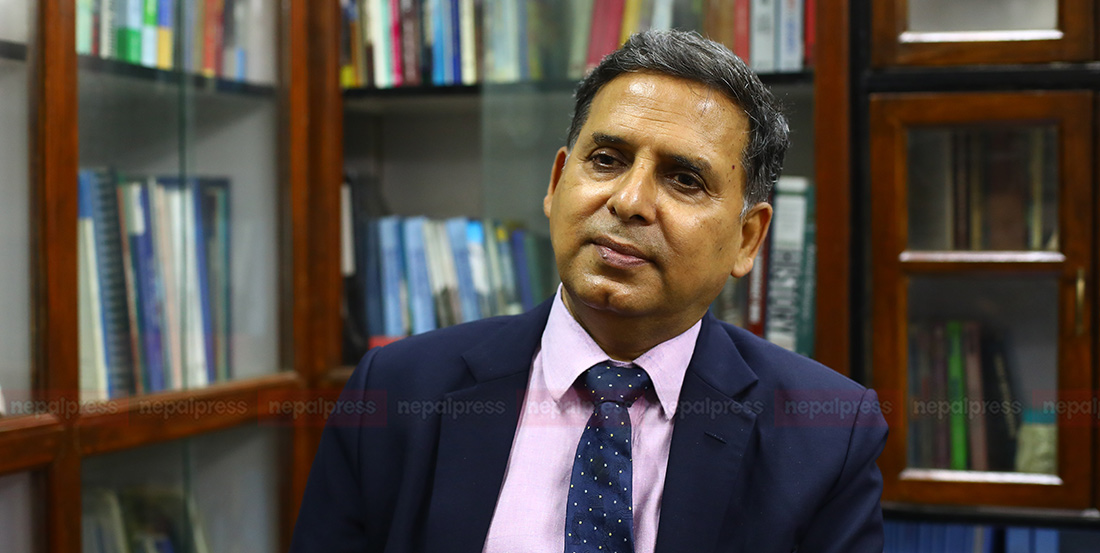
Nepal Constitution Foundation
Ladies and Gentlemen,
Ii is my pleasure to welcome you all to this fourth lecture on the Late Chief Justice Hari Prasad Pradhan Memorial Lecture Series being organized by Nepal Constitution Foundation.
This is a tradition that we have kicked off in honour of the late chief justice who had immense contribution to the development of the concept of constitutionalism and the rule of law in this country. Pradhan was a lead figure who established the domain of constitutional law in Nepal back in early 1950s. As we have another presentation here on the noted jurist, I do not want to give you further details about him at the cost of repetition.
The guest lecturer with us this time is Dr Kishore Uprety, who is a senior legal officer at the World Bank headquarters in New York. The topic of his presentation is “Conflict Management in the Context of Trans-boundary Rivers.” He will be presenting this theme in the context of a few important transboundary water disputes around the world, but with a special focus on key issues involved.
Nepal is a water rich country. It is a country of many transboundary rivers. As fresh water is a vital, yet unevenly distributed natural resource, it is going to be precious as gold in course of time. Besides life, water is necessary for proper sanitation, irrigation, commercial services, and the production of commercial goods including hydro electricity. When one recalls recent humanitarian catastrophes, such as the Rwandan genocide or war in Darfur of Sudan, it is easier to understand how important the theme is. Three of our treaties on development of hydropower signed with India is known to every educated Nepalese. All of them have become controversial as much as the best interests of the Nepalese people are concerned. But this type of conflict is not just typical of Nepal only. Water relations have always become tense around the world.
We are told there are 261 watersheds around the world that cross the political boundaries of two or more countries. These international basins cover 45.3 percent of the land surface of the earth, contain about 40 percent of the world’s population, and account for approximately 60 percent of global river flow. Disputes emerge because of opposing interests of water users, public or private, national or international. These disputes could have political, economic, environmental, or legal dimensions. Their management become complicated when water deals are finalized without complete appreciation of the political, cultural, and social aspects of water. In fact, a total of 145 nations in the world include territory within international basins. Nineteen basins are pointed out as shared by five or more riparian countries: one basin – the Danube – has seventeen riparian nations; five basins – the Congo, Niger, Nile, Rhine, and Zambezi – are shared by between nine and eleven countries; and the remaining thirteen basins – the Amazon, Ganges–Brahmaputra–Meghna, Lake Chad, Tarim, Aral Sea, Jordan, Kura–Araks, Mekong, Tigris–Euphrates, Volga, LaPlata, Neman, and Vistula (Wista) – have between five and eight riparian countries. It is natural that there are territorial disputes, a fight for resources, and strategic advantage. Even now the ongoing interstate conflicts mainly in the Middle East like disputes stemming from the Euphrates and Tigris Rivers and the Jordan river and Nile river-related conflicts among Egypt, Ethiopia, and Sudan in Africa or Aral Sea conflict among Kazakhstan, Uzbekistan, Turkmenistan, Tajikistan and Kyrgyzstan are unresolved.
The presentation of Dr Uprety is very timely. As an international lawyer who has worked in this area for a very long time, he has firsthand knowledge of the emerging international norms, newly achieved development, treaties, and institutions, sometime inefficient, often ineffective, and, occasionally, as a new source of tension themselves. He is also aware of tremendous creativity in some some respect, example of regional development, constructive diplomacy, and positive-sum, integrative allocations of joint gains. I hope the legal insight that he is going to give on water conflict today is a significant dedication to the memory of Late Chief Justice Hari Prasad Pradhan and the legacy that he has left for the constitutional legal system of Nepal.
I welcome you once again on behalf of Nepal Constitution Foundation.
Bipin Adhikari
Chairperson

